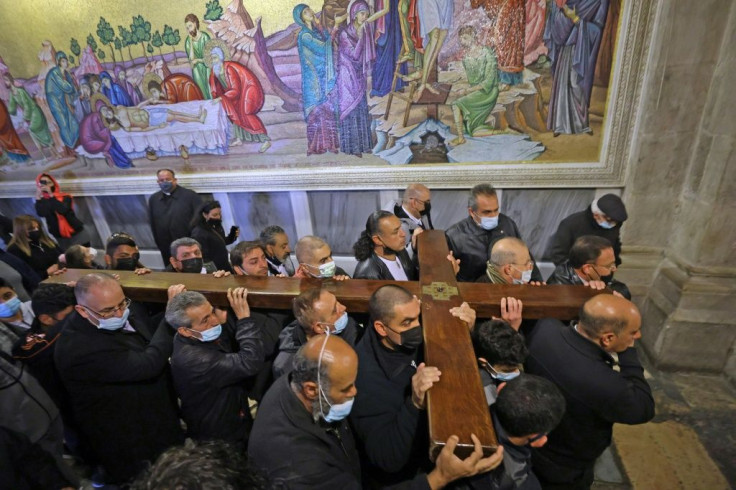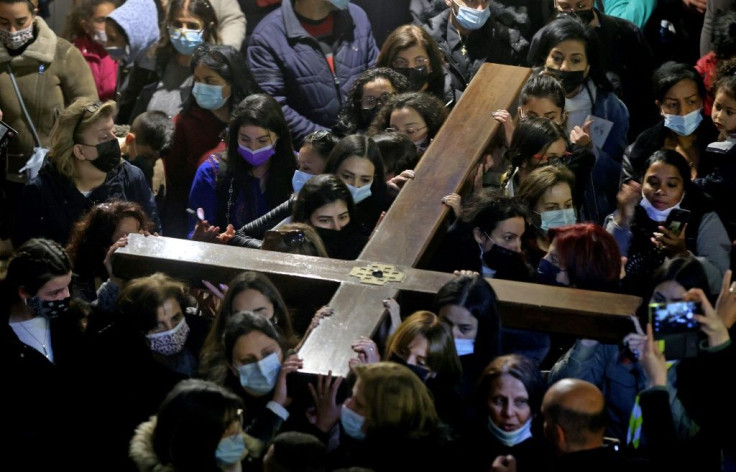Christians Mark Good Friday In Jerusalem Inching Towards Normalcy
Huddled in a corner of the Church of the Holy Sepulchre, Angele Percenita struggled to contain her tears, overwhelmed to be marking Good Friday in Jerusalem's Old City after last year's lockdown.
Percenita, a Filipina caregiver in Israel who said she has been fully inoculated against coronavirus, was one of hundreds of faithful who visited Christianity's holiest site on the day.
"It's so, so much better than last year," she told AFP.
Usually thousands mark Good Friday with a procession tracing the 14 Stations of the Cross, the route Christians believe Jesus walked while carrying his cross before being crucified.
Last year, as the pandemic was intensifying and with Jerusalem in its first of three coronavirus lockdowns, only four faithful retraced Christ's footsteps along the Old City's narrow cobbled streets.

Last year was also the first time the Church of the Holy Sepulchre -- the site of Christ's crucifixion and burial, according to tradition -- had been closed for Easter in at least a century.
Israel -- which annexed east Jerusalem including the Old City in 1967 -- has vaccinated more than half of its 9.3 million residents, allowing the reopening of most major sites.
Lina Sleibi, a Palestinian Christian, recalled watching Easter mass online in 2020.
"Last year it was very hard. We felt like the city was dead," said the 28-year-old who sings at church services in the West Bank holy city of Bethlehem nearby.
Now, "you feel alive again," she said.
The Church of the Holy Sepulchre is the final stop on the Stations of the Cross.

Hundreds of faithful, led by religious leaders bearing a cross, wound towards the church along the Via Dolorosa (Path of Sorrow) that snakes through the Old City.
While the modest crowd marked a step towards normalcy, the turnout was still minimal compared to the thousands that typically flock to Jerusalem during Easter.
In 2019, 25,000 people gathered in the city for Palm Sunday, according to the Latin Patriarch of Jerusalem.
Angleena Keizer, a minister with the Church of Scotland, told AFP it felt "special" to be marking one of Christianity's most important days at its holiest site without crowds of tourists.
"It's nice to walk down the street when it's not packed with tourists.
"But, on the other hand, we would prefer for them to be here because of the economy and for people to be able to experience Easter on the Holy Land from around the world."
Despite Israel's reopening, tourists are still broadly barred from entering the country.
Bader Rabadi, a Palestinian tour guide, said it was "painful (and) frustrating" to watch mass online last year, in contrast to this year's feeling of "celebration".
But something is still missing, he said, voicing hope that next year Christians from around the world will again be able to mark Easter in the Holy City.
"Jerusalem is not ours. It's for everyone," he said.
© Copyright AFP {{Year}}. All rights reserved.





















